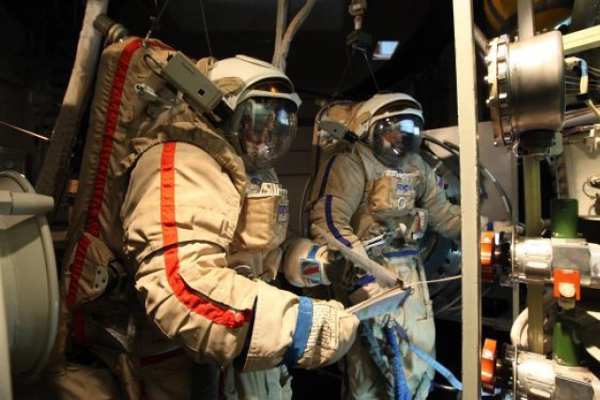The four Indian astronaut-elects have successfully completed their training in Russia and have arrived in Bengaluru recently. Having familiarised themselves with basic astronaut training the four IAF test pilots, now employees of Isro, will soon start with the mission-specific training that will happen in multiple Indian cities.
Dmitry Loskutov, director general, Glavkosmos, the organisation with whom Isro has a contract for astronaut training had told TOI in March: “…Indian astronauts didn’t need any special final exam given that they had passed all the tests and exams in the process of their preparation, he had said that the Russian module was set to complete no later than the end of March and that Isro will determine when they are supposed to return to India.”
Isro chairman K Sivan, confirming their return, said: “They are in Bengaluru and will soon start on the mission-specific training that will happen in different parts of the country. For instance, the Gaganyaan module-specific training — different conditions and reactions they need — will all happen in Bengaluru, while buoyancy and water survival tests and training will happen at NIOT (National Institute of Ocean Technology) in Chennai. We’ve roped in IAF, army and navy too.”
Some of the centrifuge tests will happen at the Institute of Aerospace Medicine (IAM) while physical and some simulator training will happen at the Isro Satellite Integration and Testing Establishment (ISITE), both in Bengaluru.
“The Indian module will be a prolonged training, not just for one or two months. The training with the crew module will be very very crucial. At the moment only engineers understand these systems and astronauts need to understand that. It is not like student-learning, they need to become experts,” Sivan added.
Training in Russia was generic and their Gaganyaan-specific training — medical training, psychological training, advanced training, and flight simulation training — will happen now. While the medical training will be a continuous process up to the time of launch, the psychological training will help manage stress in zero-gravity environments, work fatigue, etc.
The advanced training will involve familiarisation of systems, including launch vehicles. This will mostly be theory that will help astronaut-elects understand various systems that will launch them into space and bring them back safely.
After this, they will start the most important part of their training — flight simulation. Here, they will be taught how to use safety instruments, intervene manually to operate flight systems in case something goes wrong, how to take photographs of Earth and so on.
While they also underwent some survival training in Russia, they will need to be trained on the same in Indian conditions.
Further, Isro will be building or procuring new simulators that will provide advanced training to the astronaut-elects in Bengaluru. The crew and service simulators will be developed by Isro with the help of industries, which will allow astronauts to train on using onboard survival kits, operation of various systems such as orbital monitoring, Sivan said, adding that apart from all this, astronauts will have a regular schedule of aircraft flying to keep them active.
Source: ToI
You may also like
-
New Heat-Based Approach To Cancer Treatment Can Reduce Chemotherapy Doses
-
Scientists Take A Major Step Towards Unification Of Classical & Quantum Gravity
-
India Graphene Engineering and Innovation Centre (IGEIC) Under the Vision of Viksit Bharat@2047 Launched
-
New High-Performance Gas Sensor can Monitor Low Level Nitrogen Oxides Pollution
-
Antidepressant Drug can be Repurposed for Treating Breast Cancer
